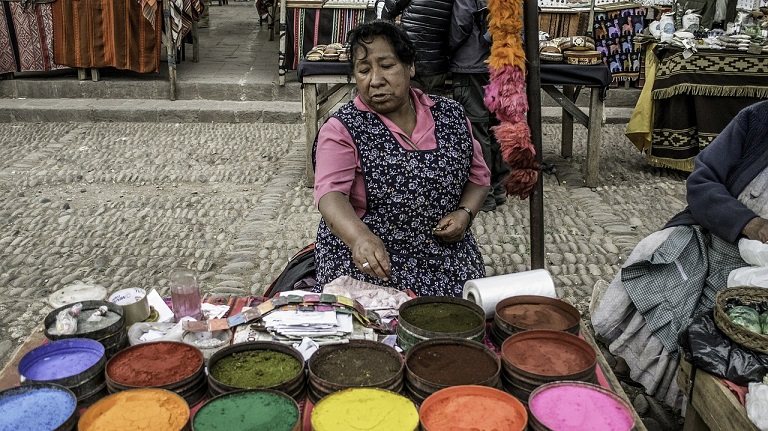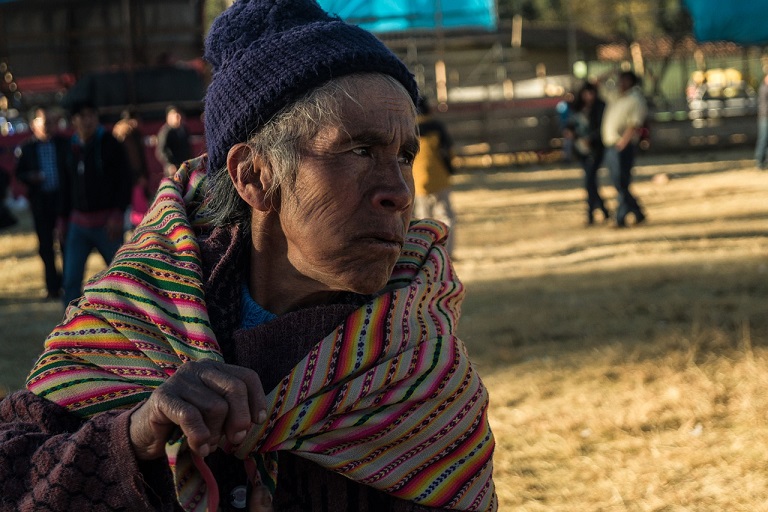The people feed off symbolism. That is why the image of a woman emerging from the mud, or a child saved by a humble rescuer, lingers in the mind’s eye. They symbolise a broken society, fractured by a social regime that is currently in decline throughout the world.
 Gustavo Espinoza M.
Gustavo Espinoza M.
Emir Castillo Cabana, the almost three-year-old boy saved from the water in Xicamarca on 15 March, and Evangelina Chamorro, “the mud woman”, rescued in the same area under similar circumstances in 2017, in some way symbolise the terrible tragedy brought on by the capitalist system and its most perverse form – the neoliberal “model” – that is threatening to swamp Peruvians.
To both, and to the Peruvian governments that administered them, we owe the array of inequities that today trouble millions and are pointing to the need for change in the country.
We have the neoliberal governments to thank for a structure of domination that has impoverished millions, concentrating immense wealth in the hands of the few. The 3% of Peruvians who occupy the top tier of the social pyramid earn the same amount as the 67% at the bottom; 78% of the working-age population lack secure employment and have to resort to working as street vendors or taxi drivers, surviving in deplorable conditions. In fact, living standards have declined over the last decade for 40% of those of working-age.
Yet, in the “richest” regions of the country (so classified thanks to their large-scale mining operations) up to 67% of Peruvians are living below the poverty line: 80% of children in Cajamarca, Puno, Huancavelica, Andahuaylas and Cerro de Pasco are suffering chronic malnutrition and their lungs are attacked by lead.
 Health is not a right but a commodity, and citizens without the resources to pay for services at a private clinic are left helpless. Those who are “insured” will have to spend several months begging for an appointment to be “served”; while the national health service will make the uninsured wait so long that they will have to arrange diagnostic tests for themselves. The health system will always come up with an excuse not to.
Health is not a right but a commodity, and citizens without the resources to pay for services at a private clinic are left helpless. Those who are “insured” will have to spend several months begging for an appointment to be “served”; while the national health service will make the uninsured wait so long that they will have to arrange diagnostic tests for themselves. The health system will always come up with an excuse not to.
Nor is education a right. Illiteracy is not a thing of the past: there are millions of people who can read but do not understand the content, or who, over time, became illiterate again because they had neither the opportunity to apply their knowledge nor the resources to continue studying or to buy books.
Not content with commercialising education, the system has also attacked the teaching profession and downgraded their diplomas, creating “Private Teaching Institutes” that hand out qualifications like they are sweets. Meanwhile, the state subsidises private universities through the grant system, recognising them as “academically solvent” and exempting them from paying taxes. As a result, they pocket all the revenue from their “education service”, the most lucrative business of our time.
Additionally, bureaucracy has increased at all levels, with the creation of unnecessary ministries and public agencies. In 2017, when the rains intensified, destroying roads and levelling homes, millions of people cried out for help to rebuild their lives. The then president heard their plea and assured the people that there would be “rebuilding, but with changes”.
 This declaration, which should have kick-started rebuilding works, instead became a bureaucratic beast with thousands of officials and a sky-high budget. Today, the tragedy has repeated itself, but has been confirmed that there was neither rebuilding nor change.
This declaration, which should have kick-started rebuilding works, instead became a bureaucratic beast with thousands of officials and a sky-high budget. Today, the tragedy has repeated itself, but has been confirmed that there was neither rebuilding nor change.
At the same time, the number of administrative staff at the Congress of the Republic has increased four-fold, so that today there are 4,000 employees for a total of 130 members of Congress – the equivalent of 26 members of staff each. Moreover, members of Parliament, ministers and other high-level officials are granted unprecedented privileges and extras benefits, they have additional income, private insurance, the latest technology and much more besides, resulting in an arrogant and useless parasitic “governing caste”.
Against this backdrop, today’s flood victims have discovered that “there are no resources” to buy motor pumps, provide equipment or help them. Because today, resources are for something else: buying carpets, funding buffets, revamping offices, buying tear gas and anti-riot gear, or financing military and policing operations like those we have witnessed recently, which left more than 70 people dead. Ayacucho, Andahuaylas and Puno know this all too well. PL
(Translated by Rebecca Ndhlovu) – Photos:Pixabay












.jpg)












